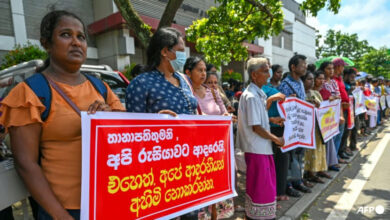India Implements Citizenship Law Ahead of Elections, Critics Decry Anti-Muslim Bias
India has announced the implementation of rules for the controversial Citizenship Amendment Act (CAA) that critics argue is anti-Muslim, just weeks before Prime Minister Narendra Modi seeks a rare third term for his Hindu nationalist government.
The CAA, enacted in December 2019, grants Indian nationality to Hindus, Parsis, Sikhs, Buddhists, Jains, and Christians who fled to Hindu-majority India from Muslim-majority Afghanistan, Bangladesh, and Pakistan before December 31, 2014. The government had not formulated implementation rules earlier due to widespread protests and sectarian violence that erupted shortly after the law’s enactment.
“The Modi government announces implementation of Citizenship Amendment Act,” stated a spokesperson for the prime minister’s office. “It was an integral part of BJP’s 2019 manifesto. This will pave (the) way for the persecuted to find citizenship in India,” he added, referring to the ruling Bharatiya Janata Party’s (BJP) 2019 election manifesto.
The Home Ministry spokesperson explained that the rules will allow eligible individuals under CAA-2019 to apply for Indian citizenship, and applications can be submitted online via a designated web portal.
Muslim groups argue that the law, coupled with a proposed national register of citizens, has the potential to discriminate against India’s 200 million Muslims, constituting the world’s third-largest Muslim population. Concerns include fears that the government might strip the citizenship of Muslims without proper documents in border states.
The government refutes claims of being anti-Muslim, asserting that the law aims to assist minorities facing persecution in Muslim-majority nations. It maintains that the law is designed to grant citizenship, not revoke it from anyone, and dismisses earlier protests as politically motivated.
Prime Minister Modi, who came to power in 2014, has focused on economic growth, welfare programs, infrastructure development, and Hindu nationalism during his tenure. Recent opinion polls suggest he is likely to secure a comfortable majority in the upcoming general election, mandated to be held by May.
The main opposition Congress party criticized Monday’s announcement, alleging that it was strategically timed ahead of the elections to polarize voters, particularly in the states of West Bengal and Assam. Both states have substantial Muslim populations and witnessed protests against the CAA, with concerns about its potential misuse to declare some Muslims as illegal immigrants from neighboring Bangladesh and revoke their Indian citizenship.



![Mumtaz Zahra Baloch, spokesperson for Pakistan's Foreign Ministry, says the country believes in constructive dialogue with the US [Courtesy of Pakistan Ministry of Foreign Affairs]](https://southasiancorrespondent.com/wp-content/uploads/2024/06/pak-1-390x220.jpg)

